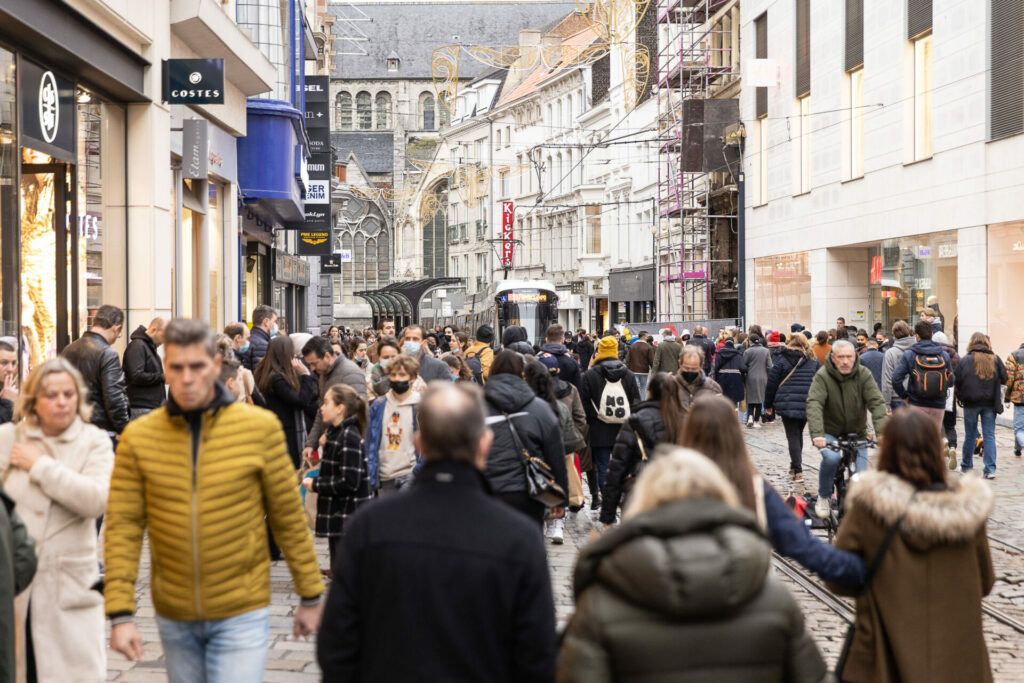Belgium's GDP growth is expected to "accelerate further" over the first quarter of this year, as falling energy prices and government-mandated wage indexations ease fears about the state of the Belgian economy.
According to the most recent economic forecast by the National Bank of Belgium (BNB), Belgium is on course for GDP growth of 0.4% in the first quarter of this year, up from 0.1% in the final quarter of 2022.
In the report (published on Thursday) Belgium's national bank states that the improved economic situation is primarily a result of the "remarkably strong increase in personal consumption". This was driven by wage indexations and falling energy prices. It also noted that the drop in energy prices "somewhat eased" inflationary pressures.
However, the Bank was careful to emphasise that its forecasts may prove incorrect. It stressed the "substantial uncertainty" surrounding its predictions and added that "the massive shocks since the start of the Covid-19 crisis" — including Russia's invasion of Ukraine and subsequent European energy crisis — pose a challenge to economic forecasting.
Contrasting viewpoints
Despite the expected uptick in Belgium's GDP, the country's long-term economic prospects are alarmingly bleak. The BNB's own annual report, published just last week, indicates that Belgium faces a serious risk of deindustrialisation due to energy prices which, though falling, remain remarkably high relative to other parts of the world.
In addition, the annual report noted that mortgage affordability in Belgium has fallen to "historically low levels" due to sharp increases in housing prices and mortgage rates. Concerningly, Belgium's budget deficit — one of the largest in the EU — was deemed "worrisome and unsustainable".
Related News
- 'Worrisome and unsustainable': National bank paints bleak picture of Belgian economy
- Belgium registers 7th lowest inflation rate in EU
The report also found that Belgian leaders have largely failed to address fundamental structural economic challenges over the past few years. The country still lags behind with a low labour force participation rate and on the transition to a green economy.
"The employment rate is too low, the budget deficit is too high and greenhouse gas emissions are falling too slowly," BNB Governor Pierre Wunsch told De Tijd. "In addition, a new challenge has been added: the decline in competitiveness."
Ominously, the BNB stated that it is unlikely that Belgium will regain its economic competitiveness any time soon: "According to current projections, any catch-up will only be partial."

